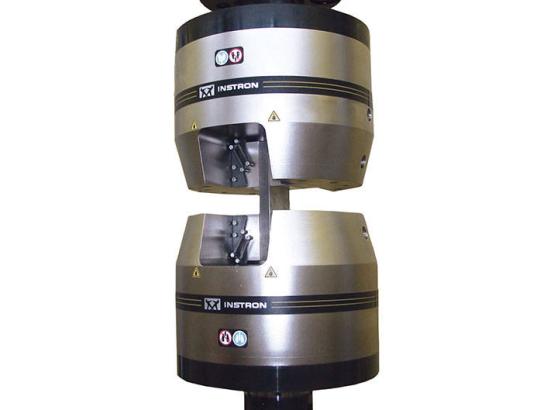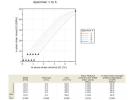ISO 14129 In-Plane Shear Stress/Shear Strain Response
ISO 14129 specifies a procedure for determining the in-plane shear stress/shear strain response, including the in-plane shear modulus and shear strength of fiber-reinforced plastic composites by the ± 45° tension test method. The method is suitable for use with thermoset and thermoplastic matrix laminates made from uni-directional layers and/or fabrics including uni-directional fabrics, with the fibres, oriented at ± 45° to the specimen axis, where the lay-up is symmetrical and balanced about the specimen mid-plane. Typically the specimens require to be strain-gauged to measure parallel and perpendicular and we would use our Expansion Channel Module for strain conditioning and output.
ISO 14129 describes how a test specimen consisting of a strip of rectangular cross-section with the fibres oriented at ± 45° to the specimen axis is loaded in tension. To determine the shear modulus the strains parallel and perpendicular to the specimen axis are measured. Composite materials are often used in aerospace, automotive, and energy applications, so it is critical to understand how much the material strength is affected under real-world conditions. For example, with the requirement to meet Nadcap, we can provide a working solution.
We recommend using either a 3400 or 6800 Series universal testing instruments with our dedicated Bluehill Universal software modules for this application, as it can easily be configured with any of the other common composite test applications, such as tensile, shear, flexure, and compression.
We provide a wide range of gripping solutions such as pneumatic or hydraulic grips that could be used in this application, depending on the material being tested. Additionally, we recommend reviewing the ISO 14129 in full to understand the test fixture and results requirements relevant to the materials you are testing.
6800 Series Premier Testing Systems Brochure
Instron 6800 Series Universal Testing Systems provide unparalleled accuracy and reliability. Built on a patent-pending Operator Protect system architecture with an all-new Smart-Close Air Kit and Collision Mitigation features, the 6800 Series makes materials testing simpler, smarter, and safer than ever before.
- Products
- 02/10/2020
- 1.93 MB
Bluehill Universal Brochure
Bluehill Universal is Instron’s advanced materials testing software, designed for intuitive touch interaction and streamlined workflows. It offers pre-loaded test methods, QuickTest for rapid setup, enhanced data exporting, and Instron Connect for direct service communication. Users of Bluehill 2 and Bluehill 3 can easily upgrade to the latest version for improved performance and usability
- Products
- 02/26/2017
- 3.76 MB
3400 Series Universal Testing Systems Brochure
Instron 3400 Series universal testing systems for tensile, compression, bend, and other material property tests.
- Products
- 06/27/2022
- 2.69 MB
Expansion Channel Module
The Expansion Channel Module (catalog no. 2210-920) allows 6800 and 5900 Series electromechanical testing systems users to add up to eight channels of signal conditioning and control. The expansion module provides up to a total of 13 transducers for simultaneous monitoring, feedback, and control.
- Products
- 04/30/2020
- 407.4 KB


